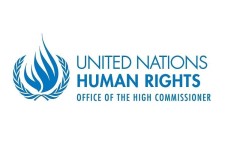Office of the High Commissioner for Human Rights (OHCHR)

The High Commissioner for Human Rights is the principal human rights official of the United Nations.
The High Commissioner:
- Carries out the functions specifically assigned to him or her by the General Assembly in its resolution 48/141 of 20 December 1993 and subsequent resolutions of policy-making bodies;
- Advises the Secretary-General on the policies of the United Nations in the area of human rights;
- Ensures that support is given to the projects, activities, organs and bodies of the human rights programme;
- Represents the Secretary-General at meetings of human rights organs and at other human rights events; and carries out special assignments as decided by the Secretary-General.
In accordance with General Assembly resolution 48/141, the United Nations High Commissioner for Human Rights is appointed by the Secretary-General of the United Nations and approved by the General Assembly, with due regard to geographical rotation for a fixed term of four years with a possibility of one renewal for another fixed term of four years.Everyone is entitled to enjoy the highest attainable standard of health. The right to health requires a number of essential elements: availability, accessibility, acceptability, quality, participation, and accountability. Protecting the right to health also means upholding many other rights that are determinants of health—from safe food and drinking water, to adequate sanitation, healthy working conditions and beyond. This requires a holistic approach from governments and societies to set effective health policies that leave no one behind. Human rights considerations, such as those related to investments in the minimum core obligations related to the right to health, have too often been missing from work related to development and economics.
UN Human Rights provides technical assistance and advice to governments and other stakeholders on essential interventions in health-related law and policy. We promote the integration of right to health standards in UN policy, tools and programmes. We help stakeholders frame their health principles in human rights terms. We also promote a “right to health” based approach to COVID-19, climate action, migration, reducing maternal and child mortality, and other topics. UN Human Rights collaborates with WHO, UNFPA and other UN entities related to the right to health.
- United Nations
- Public health, global health
- Policy making and regulation
- Mainly international

